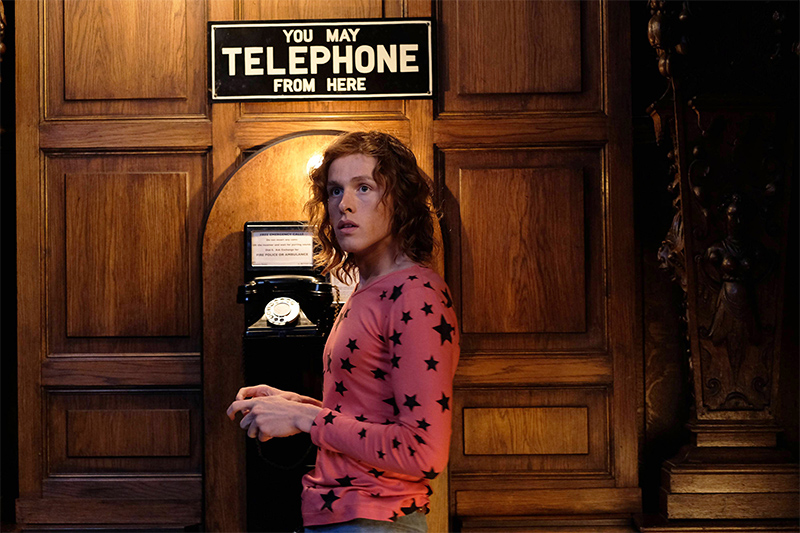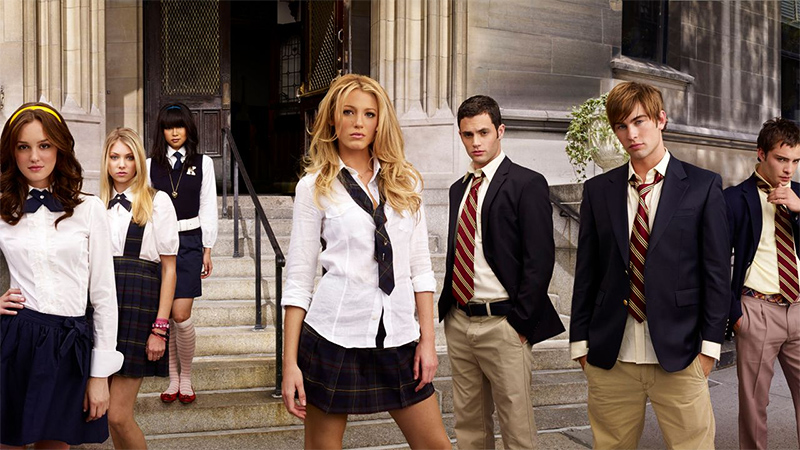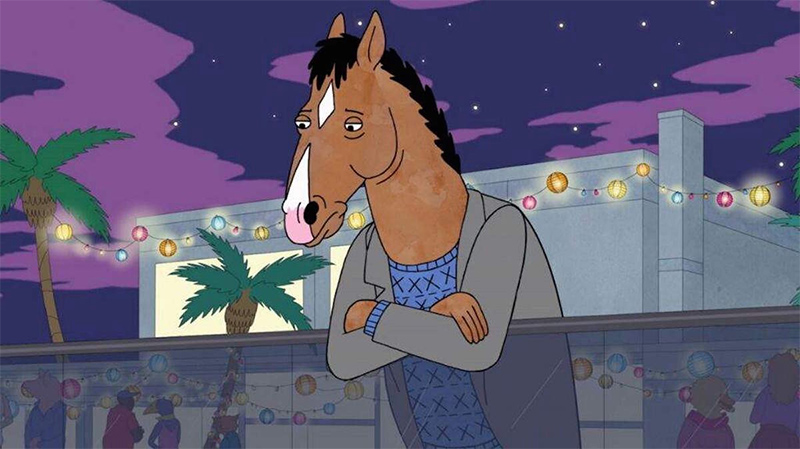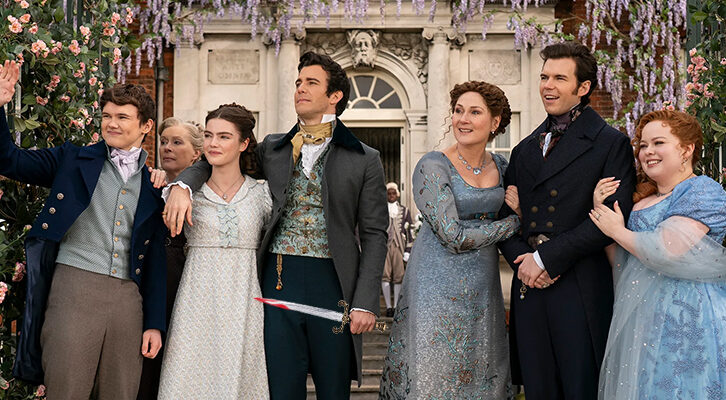
It's Time for TV to Eat the Rich
On FX's Trust and Why We Can't Stop Watching the Wealthy
As the wheel of nostalgia creaks forward, the ’00s appear poised to return in a big way. A Mean Girls musical is in development, Paris Hilton is making a comeback, and, 15 years after the start of the Iraq War, John Bolton is back in the White House as our new National Security Advisor. That means we’ve got one more thing to look forward to: the return of wealth porn. The early aughts were, among other things, characterized by the boom in a particular kind of celebrity. Of course, people have been deriding celebrity as a concept for decades, but it’s hard to avoid that conclusion that the era of The Simple Life (debuted in 2003), My Super Sweet Sixteen (2005), and of course, Keeping Up With the Kardashians (2007) cemented the rise of people “famous for being famous”—which is to say, wealthy. Enter FX’s Trust, a new drama series about one of the wealthiest families ever: The Gettys.
Trust, written by Simon Beaufoy and directed by Danny Boyle, focuses on the story of John Paul Getty III, the 16-year-old grandson of oil magnate J. Paul Getty, who was kidnapped in Rome in 1973 and held captive for several months before being released in exchange for a $2.2 million ransom: the maximum amount that the notoriously cheap Getty was told would be tax-deductible. It’s a story that’s gotten in the water lately—it was also recently told in All the Money in the World, the 2017 Ridley Scott film that will be remembered primarily for the last-minute recasting of Christopher Plummer as J.P., standing in for the disgraced Kevin Spacey. It’s unclear if Trust will be remembered for much at all.
 Harris Dickinson as John Paul Getty III in Trust (FX).
Harris Dickinson as John Paul Getty III in Trust (FX).
In Boyle’s telling, Getty is played by Donald Sutherland, dripping with condescension and cruelty as he delights in torturing his live-in harem, kicking people out of the family, and being casually racist. While ponderously deliberating over which of his “feckless progeny” should receive portions of Getty Oil, Sutherland’s Getty not only doesn’t pick up on the parallels to King Lear once they’re explicitly pointed out to him, he’s outright dismissive of the comparison. (Of course, King Lear, in which the aging king seeks to divide his kingdom among his daughters, ends with the senseless death of the beloved youngest child and his own descent into madness.) In Trust, the hyperwealthy are characterized by their intentional obtuseness.
The key to understanding Trust’s approach to wealth appears in its first episode: a seemingly invented encounter between Paul and J.P Getty that serves to lend a sort of tragic quality to the rest of the series. Paul’s intuitive understanding of the Getty Oil business model and his knowledge of art history attract J.P., who plans to give him control of the company—until he discovers the boy’s history of drug use and penchant for posing nude in magazines. This is painted as a sort of youthful discretion, unjustly denying the young Paul the opportunity to work hard at extracting oil and profits from the ground. Alas.
Wealth porn used to be a much less conflicted genre. Consider something like Dallas, an insanely popular soap opera that premiered a few years after the Getty kidnapping in 1978 and focused largely on unhappy marriages and shady business dealings—the sort of activities that are fun to watch, because everyone looks hot during the drama, and because these were problems it would be difficult to have in quite the same way if the characters weren’t all oil tycoons.
Teen soaps of the early aughts and earlier, like The OC, The Facts of Life, or even to some extent The Fresh Prince of Bel Air, also frequently revolved around the lives of rich kids, who are able to spend their time doing drugs, sleeping with each other, and generally being hot and angsty, unencumbered by the need to have a job or work at getting into college.
 The cast of Gossip Girl (The CW).
The cast of Gossip Girl (The CW).
At their best, these shows approached their characters’ wealth with an eye simultaneously voyeuristic and sneering. The audience avatar and token “poor” kid on Gossip Girl, Dan Humphrey, is an aspiring writer who enters the illustrious St. Jude’s as a scholarship student. (His father Rufus is an art dealer and former rock star who lives in an enormous Brooklyn Heights apartment, straining the credibility of his supposed class position.) But he’s also perhaps the show’s most obnoxious character: His social climbing instincts make him venal, and just as unpleasant as the callous socialites he so envies, pointing toward a complicated series that acknowledges the many different ways that wealth corrupts while still honoring the interiority of its characters. But by the end of the series, this complexity was lost; the happy relationships and continued material success of the cast became the only reason for the show to continue to exist, an especially confusing shift considering that Gossip Girl’s earliest, meanest seasons aired just before the financial crisis.
The most prominent teen soap of 2018, Riverdale, has a rather different relationship to class. Veronica Lodge is one of the show’s main characters, but her wealth occasionally keeps her at a distance from the rest of the characters. Riverdale ultimately and clearly sides with Jughead Jones, who lives in a trailer with his father and spends his time trying to protect the town’s historic roots. And quite a few other shows from the past few years are about the corrosive effects of wealth. Consider Big Little Lies, which is, among other things, about the psychic cost and ruthlessness demanded to maintain class appearances within wealthy enclaves. Or Bojack Horseman, which, though it repeatedly asserts that its title character—a washed-up sitcom actor who never has to work another day in his life—would be miserable even without coming to Hollywood, clearly lays some of the blame for his moral rot on his hollow success.
 Bojack Horseman (Netflix).
Bojack Horseman (Netflix).
Still, television is a big business, which means it can’t ever totally bite the hand that feeds it. Ostensibly an anti-capitalist cable drama, USA’s Mr. Robot initially seemed like it would let its hacker protagonist Elliott get away with bringing down the world’s worst financial firm, before confronting him with a second twisted “truth”: A cabal of the ultra-rich had let him get away with it, and was in fact using his misguided revolution to achieve its own goals. By the third season Elliott wants to undo his hack, and has totally given up on the possibility of actually changing the world. But is there anyone who actually wants to watch a TV show about undoing a massive blow to the Western financial system?
We’re used to watching hapless rich people blow through their trust funds, travel to Paris on a whim to “get away from it all,” and occasionally experience something resembling self-awareness. Are we ready for entertainment that becomes actively hostile toward them? It’d be a sharp break—and Trust itself is a product of this ambivalence. The two primary creative influences on the show seem to disagree on their obscenely wealthy subject. “J. Paul Getty did nothing wrong,” Beaufoy told Variety. (He wants to make a second season of Trust about Getty’s rise in the 1920s and 30s, which would presumably further lionize the man’s life.) Boyle, on the other hand, bemoaned the current crop of tech billionaires in the same article, comparing Jeff Bezos’s hunt for a new Amazon corporate office to The Hunger Games.
In this changing cultural market, the confusing non-presence of Trust feels like a missed opportunity. From a real-life story that, accurately adapted, says more than enough about the priorities of the rich, Boyle has created stylized, but ultimately uninteresting prestige fare that paints the Gettys as tragic figures, rather than the victims of their own senselessness and greed. Real wealth creates real power, including the luxury to create a big budget television show that opens with the chimes of Pink Floyd’s “Money,” no matter how crass and played out it may be. What else is there to do with the rich now besides eat them?
Eric Thurm
Eric Thurm is a writer in Brooklyn whose work currently appears in The Guardian, The New Republic, GQ, and Esquire. He is the creator and host of the event series Drunk Education (formerly known as Drunk TED Talks).



















